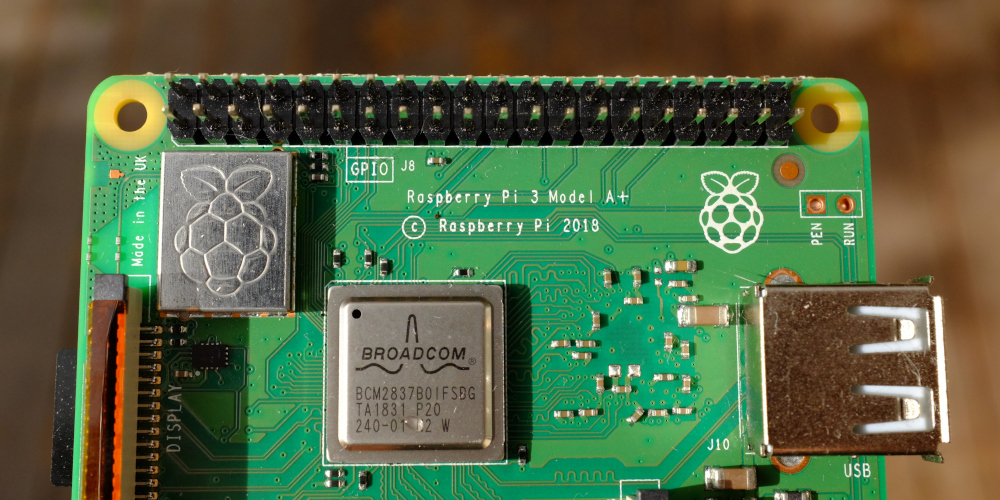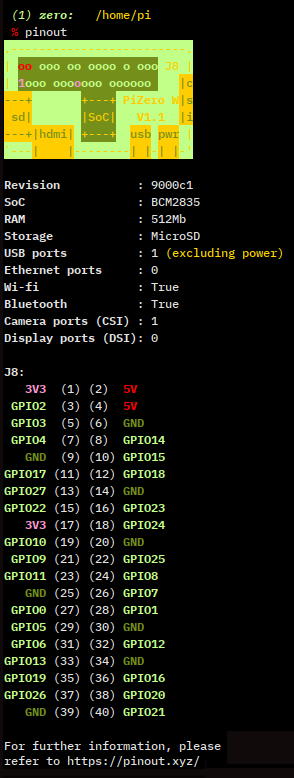From raspberrypi.org's GPIO page:
The GPIO header is the main set of input/output connections on a Raspberry Pi, apart from power supply, USB, HDMI, camera, audio and network connections. It consists of two rows of twenty pins (forty pins in total) along the top of the Raspberry Pi circuit board:
 |
Pinout#
The GPIO pins have two labelling schemes, one based on the physical pin location on the header; the other, called the BCM (Broadcom Pin Number), based on their usage. GPIO software libraries force you to select which pin numbering scheme to use (e.g., BCM pin 7 is physical pin 26, BCM pin 12 is physical pin 32).
Physical pin 1 is at lower left, pin 2 upper left, pin 39 at lower right, pin 40 at upper right.
 |
 |
You can type:
% pinoutin the Raspbian OS and it will display information about your GPIO usage.
Interrupts#
On how to use GPIO interrupts on a Raspberry Pi.
Links#
- Interactive GPIO Pinout

- GPIO
 page on raspberrypi.org
page on raspberrypi.org
- Raspberry Pi GPIO Interrupts Tutorial
 from The Robotics Back-End
from The Robotics Back-End
- How to control Raspberry Pi GPIO via http web server
